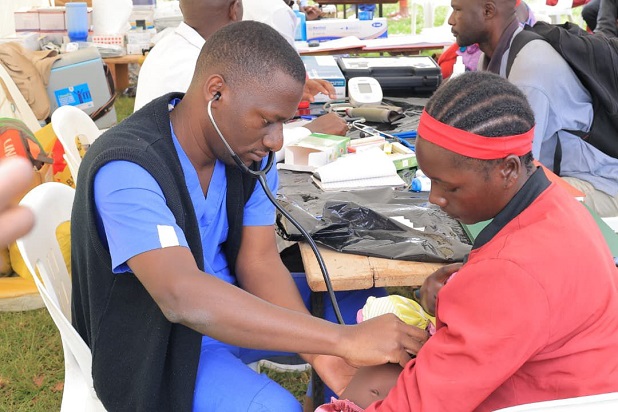Ugandan Members of Parliament (MPs) recently clashed the Executive over payment of health workers, with the two arms of government bitterly disagreeing on 2017/18 budget allocations.
The Health Ministry had submitted a proposal requesting for Shs46.86bn in 2017/17 budget for wage requirement for the authorized recruitment of staff for health facilities, but only Shs11.1bn was availed.
This left a funding gap of Shs35.76bn. The Executive insisted that money for the said recruitment and welfare of health workers wasn’t available in 2017/18 as government concentrated more on infrastructure.
The current staffing norms require a total of 392 personnel (all
Senior Consultants and Medical Officer Special Grade), but only 101 are currently employed in the public service, representing 23% of those currently registered by Uganda Medical and Dental Practitioner’s Council.
In their report to Parliament, the MPs on the Health Committee of Parliament protested the move by Government, demanding to have the money availed arguing that the shortage of health personnel affects health service delivery and impacts on attainment of sector planned outcome indicators.
It was also discovered that the department of anesthesia is one of the most affected departments, with medical officers shunning the profession due to low pay.
While appearing before the Health Committee to defend the 2017/18 ministerial budget estimates, the Ministry officials told MPs that Uganda has failed to attract Anesthetic officers.
According to documents submitted to Parliament, an anesthetic officer in Uganda receives the same salary as a nursing officer, yet an Anesthetic officer first trains as a nursing officer and then trains as an Anesthetic officer for an additional two years.
The Ministry officials argued that the money isn’t commensurate with their specialized training.
The MPs demanded to have the anesthetic officers’ salaries increased in order to attract anesthetic officers.
“The Ministry of Health working together with the Ministry of Public
Service should revise the salary structure of the anesthetic officers and upgrade them which is commensurate to the additional qualification they have in anesthesia,” the report noted in part.
Additionally, the issue of meager allowances given to medical practitioners was a hotly contested topic between the Executive and MPs.
The Committee noted that despite Government efforts to improve working conditions of medical workers, the situation remains poor and needs improvement.
It was revealed that many of the health workers do not have accommodation, with many using their little salary to pay for accommodation and transport.
Currently, health workers are paid Shs66, 000 and Shs44, 000 for Doctors and Nurses respectively as their monthly lunch allowances.
This was the rate determined twenty years ago in 1996 and no revision has been made despite the increase in costs of living.
The MPs demanded to have the lunch allowance for nurses, doctors and other health workers revised upwards, but the recommendation wasn’t considered by the Executive.
Parliament wants the rate revised to Shs288, 000 to bring the lunch allowance to at least Shs12, 000 per day across the board.
“Government should prioritize to have a modest increment in lunch allowances of Shs115.9bn to motivate health workers in a two year phased manner beginning 2018/19,” the report submitted on the floor of Parliament read in part.
However, the Executive didn’t take MPs’ advice seriously, a thing that will hit harder ordinary Ugandans.




